Rising violence, girls enslaved and burnt holy books: The grave legacy of Mali’s cruel Islamist law
As the head of Timbuktu’s religious police goes on trial for war crimes, Kim Sengupta retraces his own steps in the west African nation, where a new Islamist resurgence is beginning to take hold

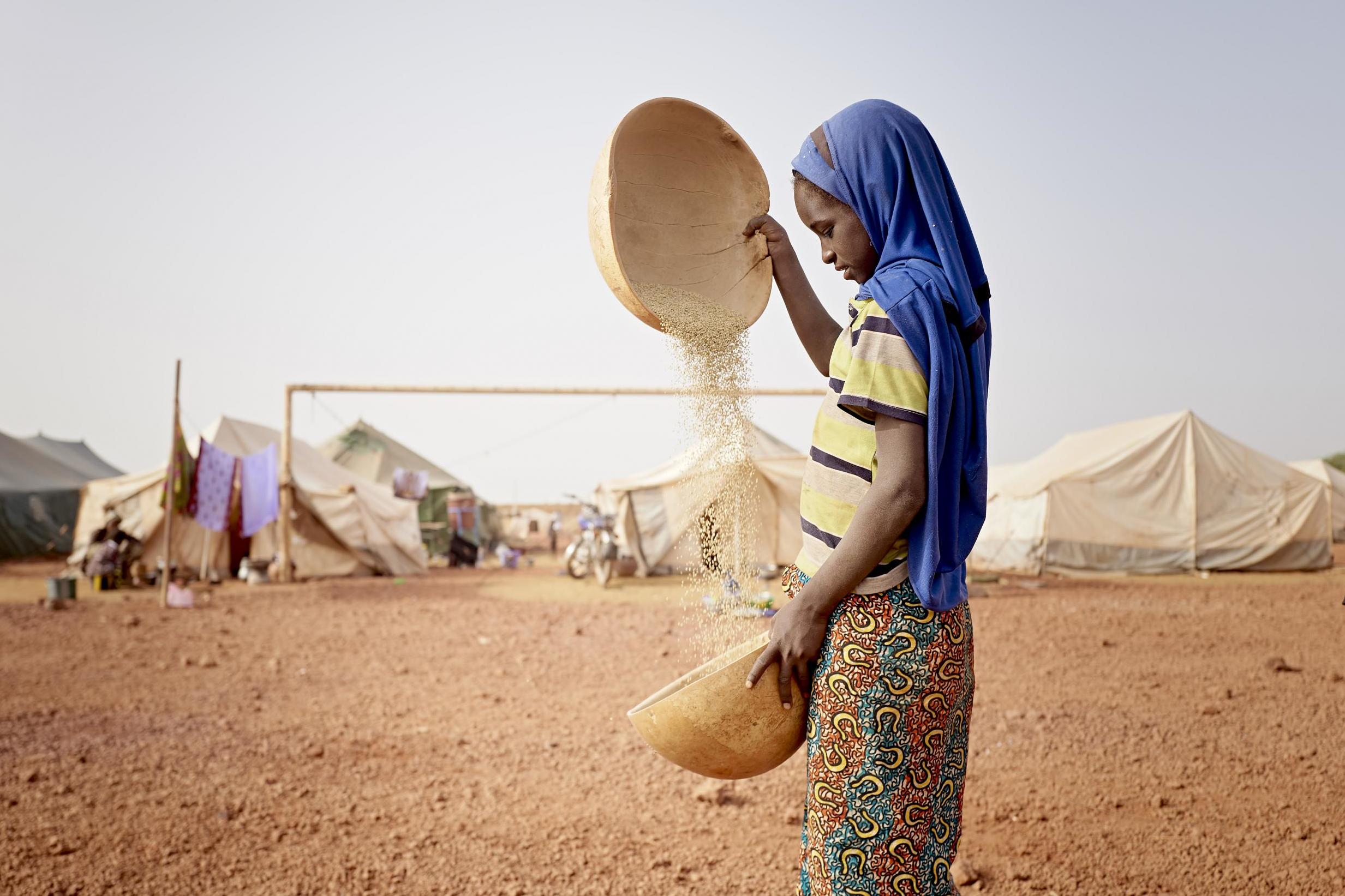
It was a day of exuberant, boisterous relief. Music, traditional and modern, filled the air. People danced and sang in the streets wearing their most colourful clothes, while others prayed in hitherto banned shrines. Timbuktu was celebrating its deliverance from the shackles of cruel and oppressive Islamist law.
It was 2013. The crowds had come out for François Hollande, who had arrived in the wondrous city after it had been freed by his country’s forces. They chanted his name and threw flowers on his path. The French president, in a dark suit and tie, which looked incongruous in the surroundings, was seemingly taken aback by the scale of the reception. He walked through the city, waving, surrounded by a tight security phalanx.
Hollande spent three hours and 48 minutes on the ground, along with French, Malian and UN officials before they all left in a swirl of helicopter dust. He visited the mosque of Djingareyber, an architectural masterpiece made out of mud 700 years ago, and the Ahmed Baba library where the Islamists had carried out their last act of vandalism in the name of religion before leaving the city, burning priceless historic manuscripts.
The violence had not ended totally. Insurgents, including those of al-Qaeda in Islamic Maghreb (AQIM), had not gone away and were raising the flag of jihad in areas which were thought to have been cleared. But almost all of the territories under brutal Salafist rule had been freed.
I had been covering the fighting in Mali ever since the Islamists threatened to take over the capital, Bamako, and the French and allied African forces intervened in Operation Serval with 4,000 troops, helicopter gunships and artillery. They secured Bamako and the south of the country and there was a general expectation that they would pause before an offensive in the north and cities like Timbuktu and Gao where the jihadis were now concentrated.
The French, however, continued the push up north and those of us journalists who had not taken a “half-time break” found ourselves accompanying the war across the country. With my translator Mamadi Keita, an invaluable colleague, it was a fascinating experience to see the changing landscape, the different communities and the extraordinary cultural heritage at journey’s end in the “Pearl of the Desert”, Timbuktu.
But never very far away was the unfolded darkness, the savage application of obscurantist Sharia law by the extremists – beheadings, amputations and whippings; rapes and abductions of women and ethnic clearance: destruction of shrines and monuments, many of them world heritage sites; burning of literature which has been condemned as heresy.
The names of jihadi commanders, many of them relatively unknown previously, some of them quite young, struck terror among the people. One of those who had gained a reputation for brutality, I learned, was Al Hassan Ag Abdoul Aziz, of the group Ansar Dine, the effective head of Timbuktu’s religious police.
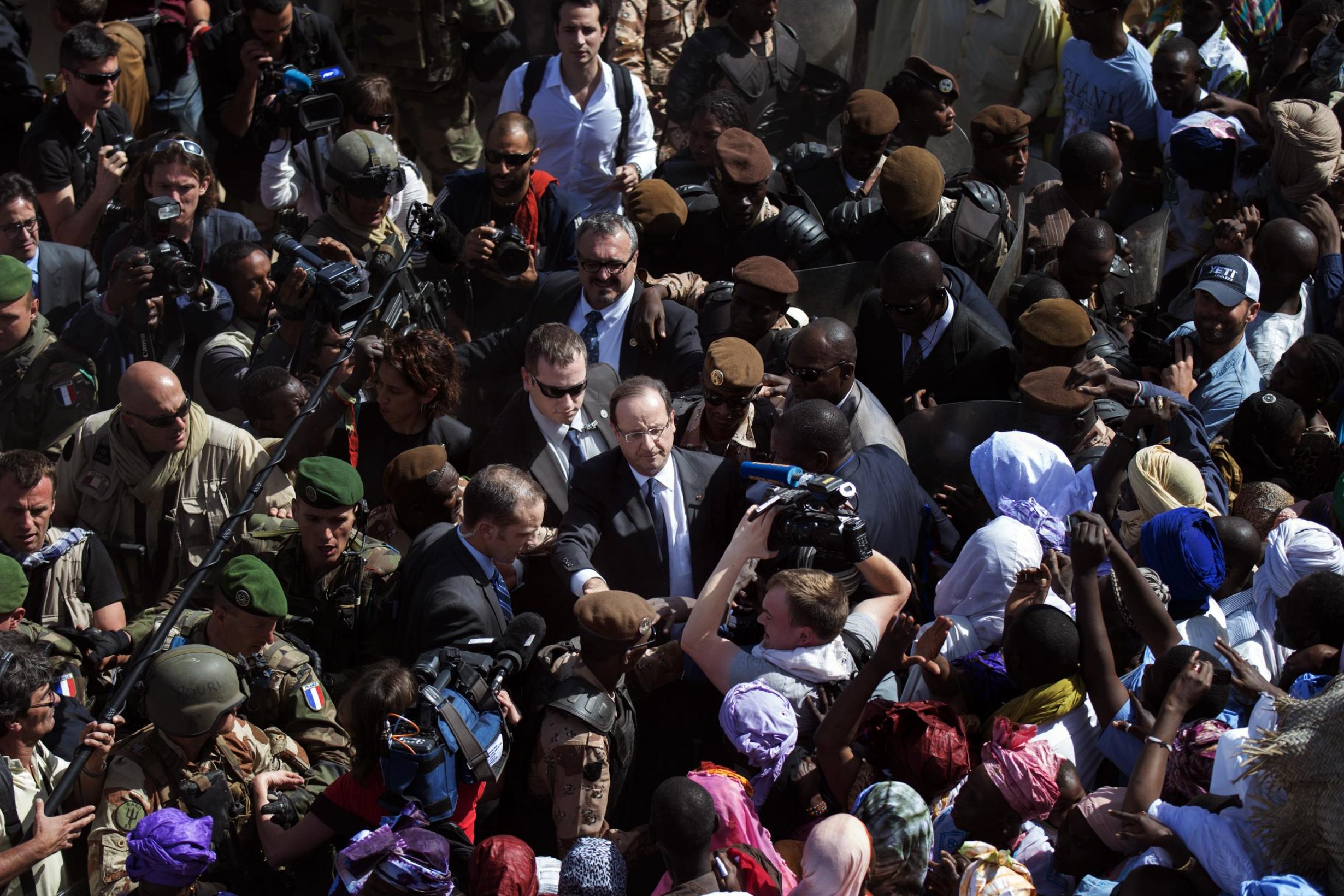
Al Hassan is currently on trial before the International Criminal Court (ICC) in The Hague, charged with crimes against humanity, war crimes, torture and sexual enslavement. He had, it is claimed, been complicit in brutal sentences given by a court to those convicted of political and non-political offences, including the severing of limbs, and marrying off hundreds of girls and young women, often as “rewards” to jihadi fighters. The charge of forced marriages is the first time that a prosecution has been brought at the court for a crime committed on grounds of gender.
Al Hassan has refused to enter a plea, saying “I cannot answer that question” 13 times to 13 sets of charges. His lawyers have maintained, variously, that he was not senior enough in the jihadi hierarchy to be brought before the ICC, that he was suffering from PTSD and that the prosecution was targeting the Muslim faith.
This is only the second trial of an Islamist before the court in The Hague. The other, four years ago, was also over crimes in Mali during the war. Ahmad al-Faqi al-Mahdi, another Ansar Dine commander, was sentenced to nine years in prison for his role in the destruction of shrines and monuments in Timbuktu. He told the judges that he had been taken over by djinns (evil spirits) and urged young Muslims to be wary of falling prey to such supernatural forces.
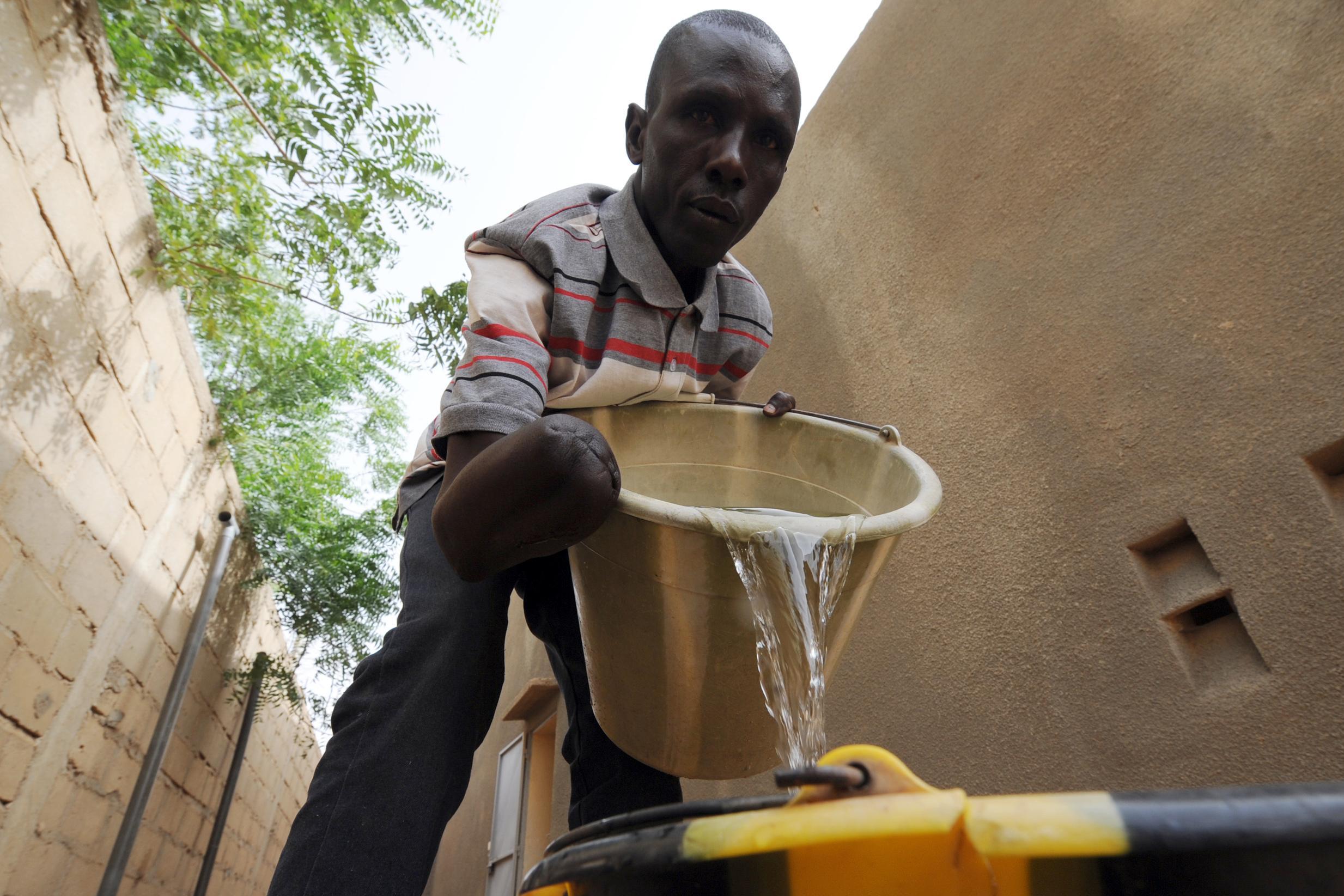
Although priceless cultural heritage was lost in Mali in the Islamist cleansing, much was saved thanks to people taking great risks to hide away what they could. A network of volunteers organised themselves and removed artefacts during the night, including beautiful manuscripts dating back centuries.
Some were smuggled out to Bamako, others were hidden in the homes of around 30 families in the city, mainly religious scholars known as marabouts. I met some of them and saw the efforts they had made to guard the works handed down through generations.
The Islamists perform religious marriages to escape the clutches of international criminal justice. They carry out a form of marriage so that during the day, you are there to serve food to the men and attend their every need. At night you are treated like a sexual slave; what is happening in Mali is unprecedented
“Can you imagine how terrible it would have been if they had burnt this? This is a book of Islam, but that wouldn’t have stopped them – as you know they burned holy books, they considered everything that did not meet their view of our religion as things to be destroyed,” said Dramane Maulvi Haidara, one of the religious guardians holding up a book of Hadiths (sayings of the Prophet Muhammad) – pages of exquisite calligraphy between fraying covers of Moroccan leather produced in the 14th century.
The manuscripts had been kept in metal trunks in a windowless room behind a heavy metal-studded wooden door. The Maulvi picked up a Quran of immense historical value, from a mosque in the city from the 1600s, when Timbuktu was at the height of its literary and theocratic renaissance. Also, there were works of astronomy and algebra, poetry and horticulture. “The salafists do not like these subjects because they say they are not in the Koran,” said 48-year-old Haidara. “But this is our history. Some of the books here are from the public library, the rest are from my family going back to my forefathers. They would have burned them all, I am so glad they have been saved.”
It was not, of course, just books and buildings, but also people, who were vulnerable. The spread of jihadi conquest was accompanied by sexual assaults on captive women, sometimes under the guise of religious marriages. Saran Keita Diakite, a lawyer and president of the Malian branch of Women, Peace and Security, an NGO, was among the first public figures to warn at the time of what was going on. “The Islamists perform religious marriages in order to escape the clutches of international criminal justice,” she said. “They carry out a form of marriage so that during the day, you are there to serve food to the men and attend their every need. At night you are treated like a sexual slave; what is happening in Mali is unprecedented.”
This form of organised assaults was not, unfortunately, unprecedented in insurgencies and continues today. But it came as a shock to what had been a structured and relatively stable society.
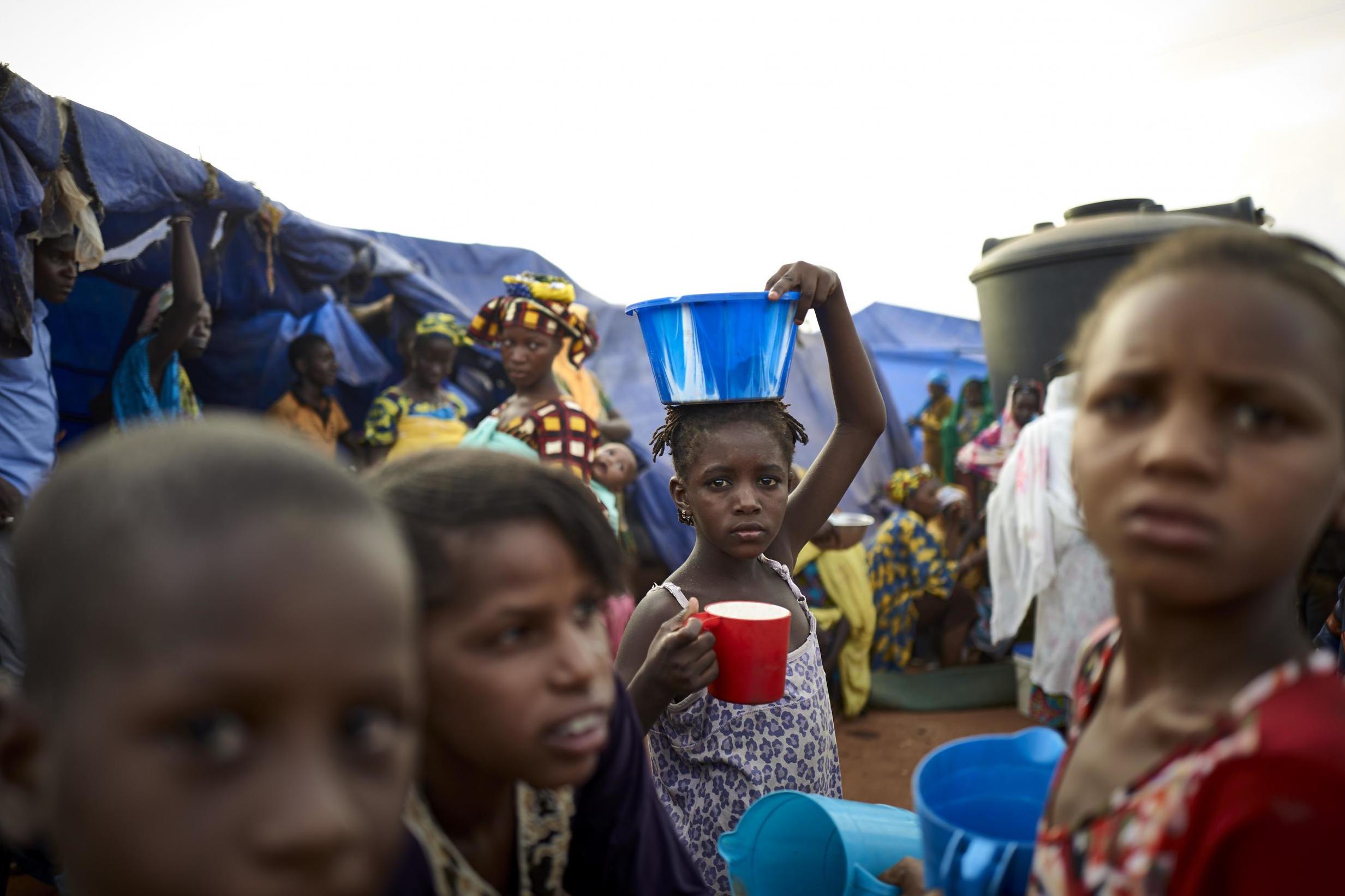
Ibrahim Sidibe came to us in Timbuktu asking whether we could put him in touch with the French military. He was looking for his sister who had been married off to a fighter and then went missing.
The 21-year-old carpenter, who specialised in Islamic designs, was living with his mother and six brothers and sisters. The family kept to their neighbourhood, away from public places in the city, as much as possible to avoid coming to the notice of the militias. But they turned up at the house one day and offered money, the equivalent of $20, for one of the girls, 15-year-old Fatouma.
“They said they were getting a bride for their leader. They said they had permission to take away Fatouma from one of our uncles. Our father had died and he thought he was the head of the family. But that was a lie, my uncle had not even spoken to them”, said Ibrahim.
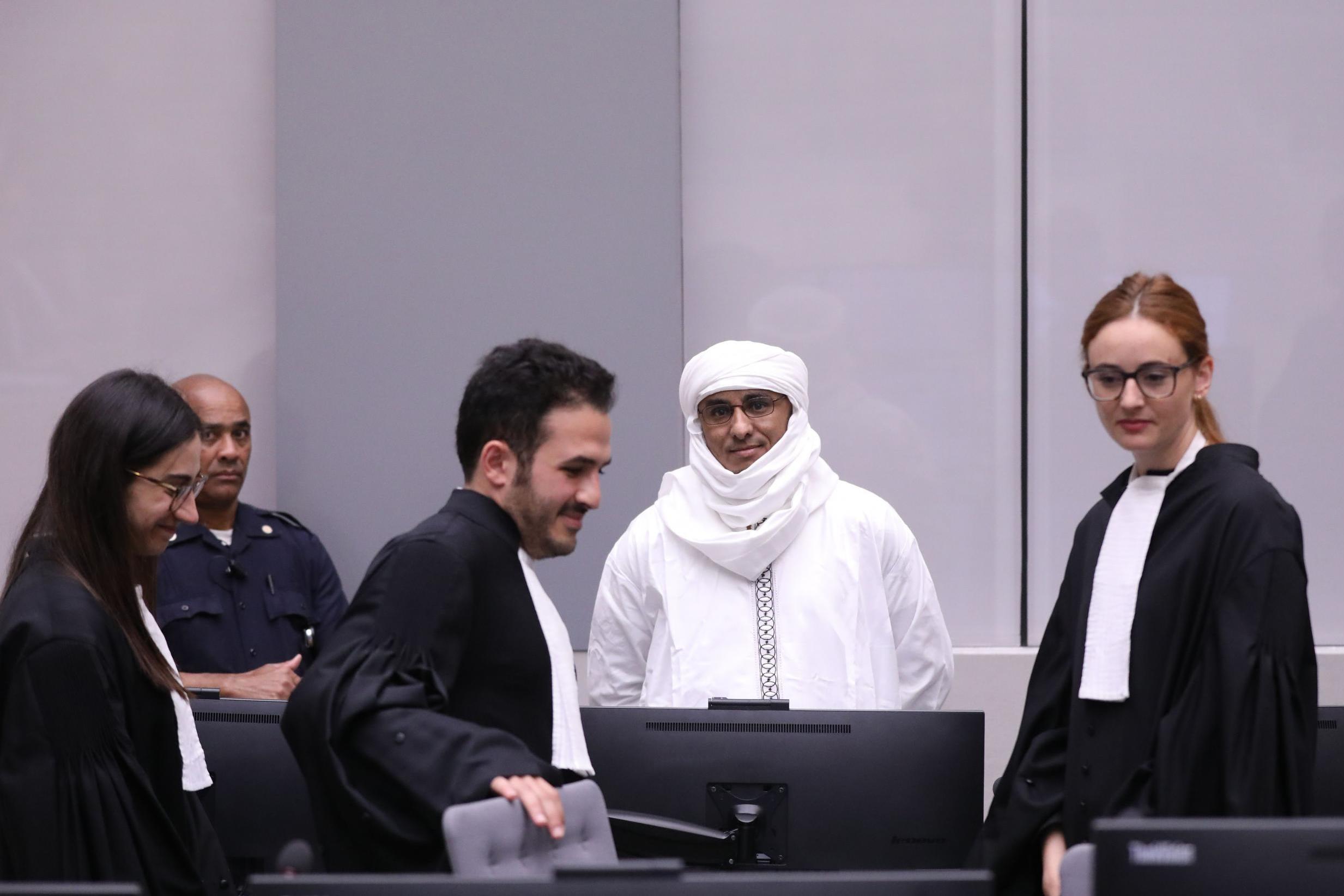
“Our neighbours had come out to support us, and the men were forced to go away. But they said they would be back and two days later they were back, a lot of them and also the police. They arrested three other girls from our area and Fatouma.”
Ibrahim and two of the brothers searched for Fatouma for a week. They were eventually told that she had been married. “All we could find out was that this man was from Kidal. He was maybe 40, and he had two other wives back home. They would not give us any other information. Fatouma was intelligent, she wanted to go back to school, this is a bad fate for her. Our mother cries every day,” said Ibrahim.
We have made some improvements in the way things are kept here, controlling some of the damage. But what we can’t control is the human danger, those people who want to destroy these lovely books and those who want to steal them. All we can do is keep the places where we have them confidential
He travelled to Kidal a week later in search of their sister, but could not find her. The Islamist fighters had retreated north into the desert and taken their families with them.
Ibrahim went back to Kidal 10 months later after hearing that Fatouma may be back. It was again a fruitless search, but he found that some of the fighters had returned to the villages in the countryside and were lying low. “That gives us hope that we might find her there one day. I feel bad about having this thought, because these people are trouble for our country, but I think they will start coming back,” he wrote.
Mali faded from most western, including British, media with interest moving to Syria, Libya, Ukraine and elsewhere.
I went back to Mali in 2015, travelling from Paris where I had been covering a week of Islamist terrorist attacks, including the Bataclan massacre, after a siege began at a hotel in Bamako following an Islamist attack.
More than 170 people were held hostage in the assault on the Radisson Blu, which was claimed by AQIM and an affiliated group, Al-Mourabitoun. Twenty-one of them were killed in the operation to retake the hotel. The Malian government claimed at first that two people who carried out the attack had both been killed, but later acknowledged that more were involved and three had escaped.
Violent insurgency was back in Mali, with Islamist groups, Tuareg separatists and tribal militias, an alphabet soup of acronyms, controlling swathes of the country, fighting government, French and UN forces. The only way to get to Timbuktu was by air: the roads had become far too dangerous.

The Islamist resurgence had also raised concern once again about the nation’s heritage. The tens of thousands of manuscripts which were smuggled out of Timbuktu by people like Haidara’s family and hidden in Bamako were no longer safe with attacks taking part in the capital.
The largest cache, of around 27,000, were hidden at the Ahmed Baba Institute, which had rebased following the destruction in Timbuktu.
The institute did not publicise its location for security reasons. The jihadis were not the only threat. With criminality rising as Mali’s economy continued to falter, the manuscripts would be highly lucrative loot for gangs to sell on to unscrupulous private dealers and collectors abroad for vast profit. Once in that dark market, the institute officials pointed out, they would disappear forever.
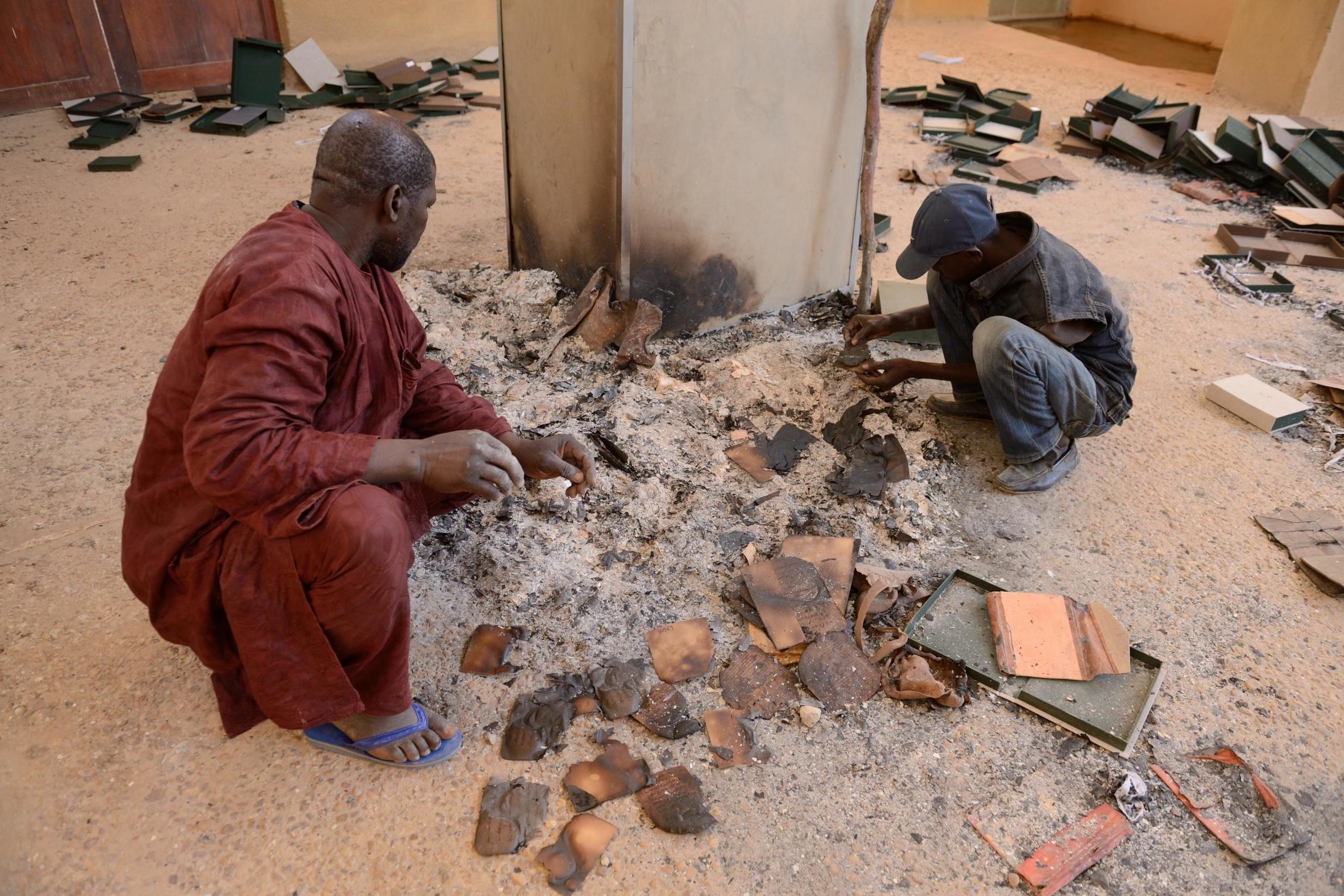
Despite the obvious care and attention of those in charge, the conditions are far from ideal, and many of the documents – some analysts estimate up to 40 per cent – were damaged. Initially, this was caused by rainwater seeping through a leaking roof. But although that was repaired, dust and heat began to erase some of the beautiful calligraphy, while pages got stuck together due to the humidity: insects had been eating through the bindings.
Some of the damage had been caused during the move of the manuscripts from Timbuktu.
Drissa Traore, the head of archives, said: “That was unfortunate, but the alternative would have been that many of these would have been destroyed, so really there was no alternative, we had to move fast.
“We have made some improvements in the way things are kept here, controlling some of the damage. But what we can’t control is the human danger, those people who want to destroy these lovely books and those who want to steal them. All we can do is keep the places where we have them confidential.”
Traore, 38 years old, had fled Timbuktu after the jihadis took over in 2012. “Worse and worse types of fighters arrived; they were fanatical: they hated everyone, those who studied religion, like us, were being imprisoned or killed because we didn’t agree with their strange version of Islam. I decided to leave when my little daughter became very ill and there was no one to treat her because they had driven away the doctors,” he said.
He had returned to Timbuktu once since fleeing: “The city itself is OK, but the terrorists are in the surrounding countryside. It would be impossible to take these precious books back to Timbuktu for now. All we can do is try to protect them until that happens.”
The situation in Mali continues to be grave. The UN force, MINUSMA, of around 15,000, has just had its mandate renewed. The US had objected to the annual cost of $1.2bn, leading to disagreements with the French. Washington had said it will review the decision next year, but Donald Trump may well be gone by then and with a return to multilateralism under a Biden administration the mission is likely to continue. The UK is sending 250 troops to join the international force later this year.
Al-Hassan Ag Abdoul Aziz’s trial is due to resume on 25 August at The Hague, when the prosecution starts its case. The Sidibes still hope to get Fatouma back from captivity. But, as Ibrahim points out, for them, and the families of hundreds of girls and women married off to slavery, hope fades as time goes on and violence continues in Mali.
Join our commenting forum
Join thought-provoking conversations, follow other Independent readers and see their replies
Comments